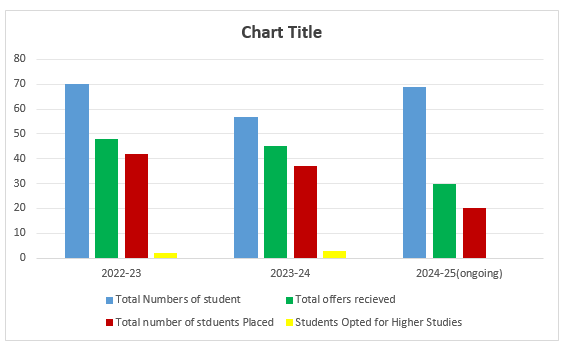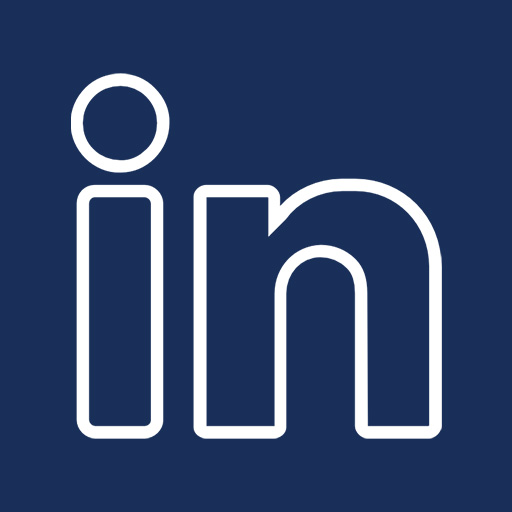Program Overview
Information science is an interdisciplinary field primarily concerned with the analysis, collection, classification, manipulation, storage, retrieval, movement, dissemination, and protection of information. Information science is one of the important branches of PESCE, Mandya. The Department of Information science and Engineering takes pride in producing quality engineers over the past 24 years. The credit for all the flowery results goes to the highly motivating staff, from which all students draw inspiration.
The Department was started in the year 2000. The present intake of the undergraduate program is 60. The strength of an IS major lies in his/her ability to apply the knowledge of information systems and technology to help organizations compete more successfully in the marketplace or to streamline current operations. The focus of the department is to provide students with in-depth knowledge in the field of computer and information technology through the following two academic programs. This undergraduate curriculum emphasizes on theoretical and practical aspects of information science. The curriculum is designed to meet industry standard and cope with the fast changing technology. Extension lectures and industrial visits are organized frequently to provide an overview on recent and current trends of information technology. Apart from curriculum, the students are encouraged to participate in research projects, technical events, cultural activities and sports. The department has a strong coverage of alumni network to support curriculum development and career guidance for ongoing student batches. Our department faculty remains a constant source of inspiration to students in order to achieve outstanding results and excellent placement records.
The department has achieved good Placement, conducted International /National Conferences and other sponsored short-term courses, National seminars and symposia. Students from the department are recruited by top IT companies. The presence of our alumni at various organizations and reputed universities across the globe has helped our graduates to plan their future endeavors.
Total Intake
60
Program Type
UG
Duration
4 Years
- About Course
- NBA
- Faculty
- Placement
- Research
- Professional clubs and chapter
- Achievements
- Results & Role of Honor
- MOOCs
Academic programs offered
UG Program
- Bachelor of Engineering (B.E.) in Information Science and Engineering (IS&E) with approved intake of 60 students and a lateral entry of 10% from 2nd year.
Vision
"The department strives to equip our graduates with Knowledge and Skills to contribute significantly to Information Science & Engineering and enhance quality research for the benefit of society."
Mission
The Department of Information Science & Engineering is committed to
- DM1: Provide students with state of art facilities and tools of Information Science & Engineering to become productive, global citizens and life-long learners.
- DM2: Prepare students for careers in IT industry, Higher education and Research.
- DM3: Inculcate leadership qualities among students to make them competent Information Science & Engineering professionals or entrepreneurs
Program Educational Objectives (PEOs)
Graduates of the program will be able to
- Establish a productive Information Science & Engineering career in industry, government or academia.
- Interact with their peers in other disciplines by exhibiting professionalism and team work to contribute to the economic growth of the country.
- Promote the development of innovative systems and solutions to the problems in Information Science using hardware and software integration.
- Pursue higher studies in Engineering, Management or Research.
Program Outcomes (POs)
Engineering Graduates will be able to
- Engineering knowledge: Apply the knowledge of mathematics, science, engineering fundamentals, and an engineering specialization to the solution of complex engineering problems.
- Problem analysis: Identify, formulate, review research literature, and analyze complex engineering problems reaching substantiated conclusions using first principles of mathematics, natural sciences, and engineering sciences.
- Design/development of solutions: Design solutions for complex engineering problems and design system components or processes that meet the specified needs with appropriate consideration for the public health and safety, and the cultural, societal, and environmental considerations.
- Conduct investigations of complex problems: Use research-based knowledge and research methods including design of experiments, analysis and interpretation of data, and synthesis of the information to provide valid conclusions.
- Modern tool usage: Create, select, and apply appropriate techniques, resources, and modern engineering and IT tools including prediction and modeling to complex engineering activities with an understanding of the limitations.
- The engineer and society: Apply reasoning informed by the contextual knowledge to assess societal, health, safety, legal and cultural issues and the consequent responsibilities relevant to the professional engineering practice.
- Environment and sustainability: Understand the impact of the professional engineering solutions in societal and environmental contexts, and demonstrate the knowledge of, and need for sustainable development.
- Ethics: Apply ethical principles and commit to professional ethics and responsibilities and norms of the engineering practice.
- Individual and team work: Function effectively as an individual, and as a member or leader in diverse teams, and in multidisciplinary settings.
- Communication: Communicate effectively on complex engineering activities with the engineering community and with society at large, such as, being able to comprehend and write effective reports and design documentation, make effective presentations, and give and receive clear instructions.
- Project management and finance: Demonstrate knowledge and understanding of the engineering and management principles and apply these to one's own work, as a member and leader in a team, to manage projects and in multidisciplinary environments.
- Life-long learning: Recognize the need for, and have the preparation and ability to engage in independent and life-long learning in the broadest context of technological change.
Program Specific Outcomes (PSOs)
The Under Graduate (UG) of B.E Computer Science & Engineering Program has defined Program Specific Outcomes (PSO) which are listed below.
- PSO-1: Excel in the IT profession by utilizing mathematical concepts, programming paradigms and software development practices for a successful career.
- PSO-2:Continuously learn and develop solutions in the IT world by applying the emerging technologies in a multidisciplinary environment.
About NBA
| Program Name | Duration | Start | End |
|---|---|---|---|
| Information Science & Engineering | 3 Years | 30-06-2017 | 30-06-2020 |
| Information Science & Engineering | 3 Years | 30-06-2020 | 30-06-2023 |
| Information Science & Engineering | 3 Years | 30-06-2023 | 30-06-2026 |
| Name of Technical Staff | Qualification | Designation | Work Experience (Yrs.) |
|---|---|---|---|
| Hanumegowda | B.E in CS | Instructor | 7.5 years |
| S.M.S Kumar | B.A | Mechanic | 18 Year |
| Sowjanya B L | M.L.I.S.C | Library Asst. | 13 Year, 9 Month |
| Usha rani N V | M.Com | Computer Operator | 1 Year 3 Month |
| Koushalya M A | BSc | Instructor | 2 Month |
| Chaithra | S.S.L.C | Attender | 3 Year 9 Month |
| Siddarth K R | S.S.L.C | Helper | 8 Year 9 Month |

| Name | Guide Name | Title of Research | Date of Final Viva Completed |
|---|---|---|---|
| Minavathi | Dr. Murali S & Dr. Dinesh M S | Techniques to analyze suspicious tissue patterns for early detection of breast tumors | Feb 2014 |
| Girish R | Dr. Murali S | Some new methodologies to track humans in a single environment using single and multiple cameras | Sep 2010 |
| Avinash N | Dr. Murali S | View metrology from uncalibrated images: approaches to find distance factors | Jun 2009 |
| Suma H N | Dr. Murali S | Pattern recognition techniques for regionalizing the activity patterns of the human brain using FMRI data | Dec 2008 |
| Shashirekha H L | Dr. Murali S | Ontology-based mining for the recognition and classification of conceptually similar documents | Nov 2008 |
| Mohan S | Dr. Murali S | Approaches to image-based 3D modeling and rendering of uncalibrated images: Optimization methods for a single view from multiple views | Sep 2008 |
| T. M Geethanjali | Dr. Minavathi | Deep learning Techniques for organ segmentation on computer tomography images | 06 Nov 2023 |
| Rakshith N | Dr. Minavathi | Achieving Energy Neutrality by Hybrid Energy Harvesting for IoT based Smart Agricultural System | 22 April 2025 |
| Name | Guide Name | University/Research Center | Thesis Completed |
|---|---|---|---|
| M.R Suresh | Dr. Piyush Kumar Pareek | JJT University | Coursework Completed |
| Name | International / National Journal | International / National Conference | Total |
|---|---|---|---|
| M R Suresh | 01 | - | 01 |
| T S Prabhakar | 03 | 01 | 04 |
| Bramesh S M | 06 | 04 | 10 |
| Rakshith N | 08 | 03 | 11 |
| Harshith K S | 09 | 01 | 10 |
| Name of the Authors | Title | Application No. | Date of Application/Publication |
|---|---|---|---|
| Dr. Anitha M L and Ms. Hemashree S S | Predicting child mental stress using AI | 202341016400 A | 17/03/2023 |
| Dr. Anitha M L and Ms. Hemashree S S | Certificate authentication system with blockchain technology | 202341016404 A | 17/03/2023 |
| Mr. M R Suresh | Ergonomically Designed DIE Casting Table for Safety and Quality | 202041034350 A | 04/09/2020 |
| Dr. Rakshith N | Cell Capacity Evaluation using Fifth Generation WLAN and IEEE 802.11ax for VBR Traffic | 202241011563 | Published |
| Dr. Rakshith N | Video Recommendations using AI | 202241046609 | Published |
| Project Title | Year | Funding Agency | Amount (Rs.) | Status |
|---|---|---|---|---|
| Artificial Intelligence and Machine Learning Lab | 2020 | AICTE | 7.5 Lakhs | Ongoing |
| Network Forensic Lab | 2017 - 19 | VGST | 20.00 Lakhs | Ongoing |
| Document Text Segmentation And Identification In Moving Picture | 2009 - 2011 | AICTE | 6.00 Lakhs | Completed |
| Video Segmentation For Vision Based Surveillance With MICAV's For Situation Awareness And Activity Tracking | 2007 - 2009 | DRDO | 5.00 Lakhs | Completed |
| View Metrology On Uncalibrated 2-D Images And an Aapproach to 3-D Modeling and Rendering | 2006 - 2009 | UGC | 6.14 Lakhs | Completed |
| Document Text Segmentation and Identification In Moving Pictures | 2003 - 2004 | R&D | 6.00 Lakhs | Completed |
Academic Year 2024-25
Faculty Achievement
| Name | Description of the Achievement |
|---|---|
| Dr. Rakshith N | Best Paper Award in IEEE Conference ICDSNS-2024 conference on 26 th & 27 th July, 2024 |
Student Achievement
| Name | Description of the Achievement |
|---|---|
| Harshitha H S, Meghana M N, Vanitha S L | Participated in INNOVATE-A-THON |
| Darshan M S, Shubham Malhotra | Second place in Inter Department Chess competition |
| Harsha Mohan | IEEE student volunteer |
| Likith Raj, Supreeth M S, Dhanush H M, Vinay, Chandan K, Rohith M C, Vikas B | Second place in Inter Department Basketball competition |
| Rahul H U | Published paper at IEEE conference on "Detectify: Image Tampering Detection using Error Level Analysis and Convolutional Neural Network" |
| M Chakravarthy | 2nd place in LOGO RUSH event organized by 19th ISTE Karnataka State Level Student Convention |
| Sanath Kumar S, Yathish G P | Participated in TECH-TUSSLE competition at BGSIT |
| Dhanush A M | Participated in TECH-TUSSLE and won 1st place in Blind Coding event at BGSIT |
| Kannika Rani B N | Represented VTU Softball (Women’s Team) in All India Inter-University Championship 2023-24 |
| Abhishek Gowda M | Runner-up in Cricket (Men) Inter-Collegiate Mysore Zone Tournament |
Academic Year 2023-24
Student Achievement
| Name | Description of the Achievement |
|---|---|
| Nisarga G R, Krupa S Gowda | Winner in INFOTHON 2.0 National Hackathon at VVCE, Mysore |
| Sagar H V, Rahul R, Varun Bharadwaj M V | Participated in INFOTHON 2.0 National Hackathon at VVCE, Mysore |
| Sameed Irfan | Participated in CodeHunt Hackathon at VVCE, Mysore |
| Aishwarya S, Darshan M S | 1st Place in PRAGYATHA’23 Hackathon at MCE, Hassan |
| Supriya M S, Keerthan B J, Arun Kumar, Harsha M | Participated in PRAGYATHA’23 Hackathon at MCE, Hassan |
| Prithviraj B, Sujay M, Prajwal Gowda C M, Rahul H U, Gaganashree J S, Manjunath M R | Participated in INVADERS Hackathon at MIT Mysore |
| Manjunath M R, Varun Bharadwaj M V, Yathish G P | Participated in National FUSIONTECHATHON 23’ at AIET, Ujire |
| Darshan M S | Participated in BEYONDERS APOCALYPSE Hackathon at Atria University |
| Nisarga G R | Participated in 2023 IBM Z Datathon |
| Manish R | Participated in Google AI Campus Fest |
| Manjunath M R | Participated in CodeFury 6.0 Hackathon |
| Nisarga G R, Hemashree S S | Participated in Women@Work Conclave |
| Nisarga G R | Participated in Equitable Elevation III Hackathon |
| Prajwal Gowda C M, Prithviraj B, Prajwal K M, Priyanka | Presented paper in International Conference at ATME, Mysore |
| Darshan T S, Aniruddh P Koundinya, Surya K, Meghana M Y | Presented paper in International Conference at ATME, Mysore |
| Ruchitha M R, Disha T S, Kushal S, Harsha Mohan | Participated in HACKSPRINT Hackathon at PESCE |
| Darshan T S | Won 2nd Place in HACKSPRINT Hackathon at PESCE |
| Aniruddh P Koundinya | IEEE Student Volunteer – Outstanding Service Award |
| Harsha M | Participated in Flagship International Conference at MCE, Hassan |
| Gowtham C K | Participated in SHAASTRA 2024 at IIT Madras |
| Hemashree S | Participated in W@W Empower Session |
Academic Year 2022-23
Student Achievement
| Name | Description of the Achievement |
|---|---|
| Aniruddh P Koundinya, Darshan T S | 1st Prize in National HACKERRUPT’22 at VVCE |
| Aniruddh P Koundinya | Participated in Technical Talk at NITTE Meenakshi |
| Akansha Thakur | Runner-up in National Inter Zone Chess Tournament 2022–23 |
| Sumanth M | Winner in Inter-Collegiate Mysuru Zone Football Tournament 2022–23 |
| Akansha Thakur | Won 1st Prize in National Inter Zone Chess Tournament-II 2022–23 |
| Jyothi Ram | Participated in Sports – Table Tennis (Women), VVCE |
| Aniruddh P Koundinya | Participated in 2nd Edition of the Flagship International Conference Series of IEEE Mysuru Subsection |
| Darshan T S | Participated in 2nd Edition of the Flagship International Conference Series of IEEE Mysuru Subsection |
| Greeshma | Participated in Smart India Hackathon 2022 at Arya Institute of Engineering and Technology, Jaipur |
| Akshay Kumar, Jyothi Kumari | Won 1st Prize in Smart India Hackathon 2022 at CIT, Bangalore |
| Aniruddh P Koundinya | Participated in IEEE Student Congress 2022 at VVCE |
| Aniruddh P Koundinya, Darshan T S | Participated in CODE IGNITER 2023 Hackathon at GSSS, Mysore |

| Name of Student | USN | CGPA | Rank |
|---|---|---|---|
| Sowmya.K.S | 4PS21IS051 | 9.39 | 1ST |
| Nisarga.G.R | 4PS21IS037 | 9.14 | 2ND |
| Lakshmi.C.D | 4PS21IS030 | 8.81 | 3RD |
| Name of Student | USN | CGPA | Rank |
|---|---|---|---|
| MANOJ GOWDA .B. K | 4PS20IS019 | 9.15 | 1ST |
| T.S. Swathi Bharadwaj | 4PS20IS038 | 8.9 | 2ND |
| KEERTHANA .V | 4PS20IS015 | 8.76 | 3RD |
| Name of Student | USN | CGPA | Rank |
|---|---|---|---|
| D.Shriyans Dhruv | 4PS19IS017 | 9.01 | 1ST |
| Gagana.M.P | 4PS19IS021 | 8.80 | 2ND |
| Akhila B.K | 4PS19IS004 | 8.77 | 3RD |
























